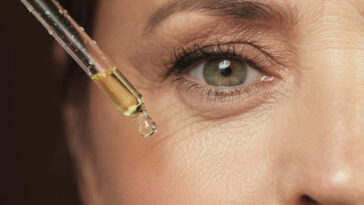We often think of air pollution as an invisible threat that primarily affects our lungs and respiratory system. However, the reality is much more insidious. Air pollutants can wreak havoc on our skin, leading to a range of disorders and premature aging.
How Air Pollution Impacts Your Skin:
- Oxidative Stress: Pollutants like ozone, nitrogen dioxide, and particulate matter generate reactive oxygen species (ROS). These unstable molecules damage cellular DNA and proteins, accelerating skin aging.
- Inflammation: Air pollution triggers chronic inflammation in the skin. This inflammation can break down collagen and elastin, the proteins responsible for skin firmness and elasticity.
- Pigmentation Problems: Pollutants can interfere with melanin production, leading to hyperpigmentation (dark spots) and uneven skin tone.
- Weakened Skin Barrier: Air pollution disrupts the skin’s natural barrier function, making it more susceptible to dryness, irritation, and sensitivity.
- Premature Aging: The cumulative effects of oxidative stress, inflammation, and barrier disruption contribute to premature aging, characterized by wrinkles, fine lines, and loss of skin elasticity.
Skin Disorders Exacerbated by Air Pollution:
- Acne: Pollutants can clog pores and exacerbate acne breakouts.
- Eczema: Air pollution can trigger or worsen eczema flare-ups, leading to dry, itchy, and inflamed skin.
- Rosacea: Individuals with rosacea may experience increased redness, flushing, and skin sensitivity due to air pollution.
- Psoriasis: Air pollution can worsen psoriasis symptoms, including scaly patches and inflammation.
Remedies and Preventive Measures:
- Cleansing: Thoroughly cleanse your face twice daily to remove pollutants and dirt. Use gentle, non-irritating cleansers.
- Antioxidant-Rich Skincare: Incorporate antioxidants like vitamin C, vitamin E, and ferulic acid into your skincare routine. These ingredients help neutralize free radicals and protect the skin from oxidative damage.
- Hydration: Keep your skin hydrated by drinking plenty of water and using hydrating moisturizers.
- Sun Protection: Always wear broad-spectrum sunscreen with an SPF of 30 or higher, even on cloudy days. UV radiation from the sun works synergistically with air pollution to damage the skin.
- Air Purifiers: Consider using air purifiers in your home and workplace to reduce indoor air pollution.
- Limit Outdoor Exposure: When air quality is poor, minimize outdoor activities, especially during peak pollution hours.
- Wear Protective Gear: When outdoors, wear a mask to reduce exposure to particulate matter.
- Healthy Diet: Consume a diet rich in fruits, vegetables, and antioxidants to support overall skin health.
Air pollution is an invisible assailant that can significantly impact the health of your skin. By understanding the mechanisms of damage and implementing the preventive measures outlined above, you can protect your skin from the harmful effects of air pollution and maintain a healthy, youthful complexion.





 No products in the cart.
No products in the cart.